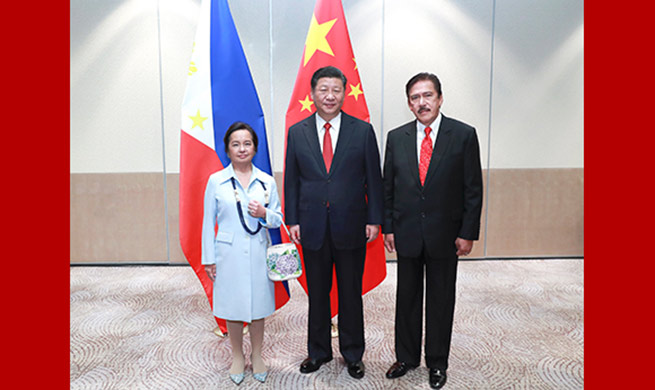CANBERRA, Nov. 22 (Xinhua) -- The opposition Australian Labor Party (ALP) has revealed its signature energy policy, including ambitious renewable energy and emissions reduction targets.
Bill Shorten, leader of the ALP, on Thursday announced that 50 percent of Australia's power would come from renewable sources by 2030 if his party wins power at the 2019 general election.
In addition to the renewable energy target (RET), Shorten adopted the National Energy Guarantee (NEG) - the signature energy policy of former Prime Minister Malcolm Turnbull - as Labor policy.
Turnbull proposed the NEG in October 2017, but his plan to include a 26-percent emissions reduction target in the policy proved costly, with conservative members of the governing Liberal-National Party (LNP) leading a rebellion against the policy, which ended in Turnbull's downfall as PM.
Shorten said that the ALP would commit to a 45 percent emissions reduction target from 2005 levels by 2030, but added that, unlike Turnbull, he would not enshrine the policy in legislation.
To achieve the targets, Shorten announced that an ALP government would spend 200 million Australian dollars (about 145 million U.S. dollars) to subsidize batteries for 100,000 Australian homes, saying that adopting the technology will save those households up to 60 percent on their energy bills.
"If I'm elected prime minister, I will not sit around and wait for the Liberals and Nationals to stop arguing about whether climate change is real," Shorten said in a speech on Thursday.
"I will act to lower prices, to cut pollution, to boost renewables and create jobs.
"A Labor government I lead will be prepared to directly underwrite and invest in cleaner, cheaper power for Australia.
"We will prioritize renewables and support firming technologies like storage and gas. Labor will invest in new generation, in better transmission and distribution -- because we -realise this vital -nation-building work cannot be left up to the big power companies."
The ALP will embrace the investment framework put forward by the Australian Competition and Consumer Commission (ACCC), which recommended using the 10 billion Australian dollar (about 7 billion U.S. dollars ) Clean Energy Finance Corporation (CEFC) to address Australia's energy shortfall.
The CEFC, established under a former ALP government, has a mandate to invest in renewable energy and low-emissions projects, meaning that coal-fired electricity would not be included in Labor's plan.
Energy Minister Angus Taylor dismissed the ALP's proposals earlier on Thursday, saying that batteries could not power large businesses.
"The real problem with this is, even if they install those batteries, it doesn't touch the sides. It's not even close to enough," he told Macquarie Media radio.
"If we want to keep jobs in this country, if we want to keep manufacturing, if we want to be a country that keeps making things, you have to have an electricity system that's affordable but can provide that reliable power."
Recent opinion polls have suggested that the ALP is set to win the 2019 election in a landslide, with voters citing the leadership crisis that saw Turnbull deposed as PM as a key factor in voting against the LNP.













